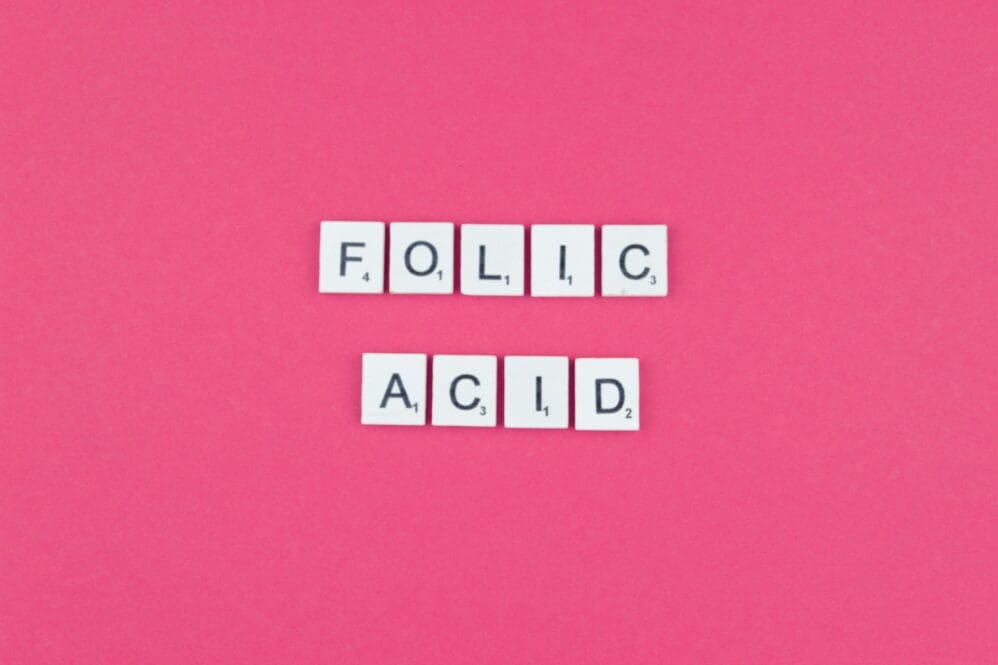Folic acid is a nutrient found in leafy green vegetables, legumes, nuts, and fortified foods. It is important for pregnant women to take folic acid to help prevent birth defects of the brain and spine. After a miscarriage, some women may wonder if they should continue to take folic acid. There is no evidence that continuing to take folic acid after a miscarriage will prevent another miscarriage. However, many doctors recommend that women who have had a miscarriage take folic acid for at least three months. This is because it takes at least three months for the body to replenish its stores of folic acid. Women who have had multiple miscarriages may be advised to take a higher dose of folic acid.
1. Many women worry about whether or not they should take folic acid after amiscarriage. 2. Folic acid is an important nutrient for pregnant women. 3. It is recommended that all women who are of childbearing age take a daily supplement of folic acid. 4. However, there is no evidence that folic acid prevents miscarrying. 5. In fact, some studies have found that high doses of folic acid may actually increase the risk of miscarrying. 6. If you have had a miscarriage, you should speak to your doctor about whether or not you should continue taking folic acid. 7. You may also want to consider taking a break from folic acid and other supplements for a while.
1. Many women worry about whether or not they should take folic acid after amiscarriage.
1. Many women worry about whether or not they should take folic acid after a miscarriage. The answer to this question is not straightforward, as there are many factors to consider. Some doctors may recommend continuing to take folic acid after a miscarriage, as it can help to prevent another miscarriage from occurring. However, it is important to speak to your doctor before making any decisions, as they will be able to advise you on what is best for you. There is no evidence to suggest that taking folic acid will increase the chances of a successful pregnancy after a miscarriage. However, some women may find that taking folic acid makes them feel better mentally and emotionally, which can be beneficial during this difficult time. ultimately, the decision of whether or not to take folic acid after a miscarriage is a personal one. It is important to speak to your doctor and to make sure that you are comfortable with your decision.
2. Folic acid is an important nutrient for pregnant women.
A miscarriage is a heartbreaking event for any woman to go through. After miscarrying, you may be wondering if there are any steps you can take to prevent it from happening again. Folic acid is a nutrient that is important for pregnant women, and taking it may help to reduce the risk of miscarrying. Folic acid is a water-soluble vitamin that is found in leafy green vegetables, legumes, nuts, and fortified foods. It is important for pregnant women to take enough folic acid because it helps to prevent certain birth defects of the brain and spine. The Centers for Disease Control and Prevention (CDC) recommends that all women of childbearing age take 400 micrograms (mcg) of folic acid every day. If you have had a miscarriage, you may be wondering if you should still take folic acid. The answer is Yes. Even if you have had a miscarriage, it is still important for you to take folic acid. This is because you may still become pregnant again, and folic acid can help to prevent birth defects. If you are planning on becoming pregnant again, you should speak to your healthcare provider about the best way to increase your folic acid intake. You may be advised to take a daily supplement, or to make sure that you are eating foods that are rich in folic acid. Getting enough folic acid is important for all women of childbearing age, but it is especially important if you have had a miscarriage.
3. It is recommended that all women who are of childbearing age take a daily supplement of folic acid.
It is recommended that all women who are of childbearing age take a daily supplement of folic acid. This is because folic acid can help to prevent certain birth defects of the baby’s brain and spine. If you have had a miscarriage, you may be wondering if you should still take folic acid. The answer is yes. Even if you have had a miscarriage, it is still important to take folic acid every day. This is because you could still become pregnant again and you want to do everything you can to prevent another miscarriage. If you have had a miscarriage and you want to start taking a daily supplement of folic acid, talk to your doctor first. They can help you figure out the right dose for you.
4. However, there is no evidence that folic acid prevents miscarrying.
There is no evidence that folic acid prevents miscarrying, but it is still important to take it during pregnancy. Folic acid helps to prevent birth defects of the brain and spine, so it is important to take it before and during pregnancy.
5. In fact, some studies have found that high doses of folic acid may actually increase the risk of miscarrying.
It is often recommended that women take folic acid supplements before and during pregnancy to help prevent birth defects. However, some studies have found that high doses of folic acid may actually increase the risk of miscarrying. Folic acid is a water-soluble vitamin and is found in leafy green vegetables, legumes, nuts and fortified foods. The body needs folic acid to produce red blood cells and for the proper development of the nervous system. While the body needs only a small amount of folic acid, it is important to consume enough during pregnancy as it helps to prevent birth defects of the brain and spine. The recommended daily amount of folic acid for women who are pregnant or might become pregnant is 400 micrograms (mcg) per day. This can be obtained by taking a supplement or by eating foods that are fortified with folic acid. Some studies have found that taking a higher dose of folic acid (more than 400 mcg per day) may actually increase the risk of miscarrying. One study found that women who took a daily supplement containing 800 mcg of folic acid were more likely to miscarry than women who took a daily supplement containing 400 mcg of folic acid. Another study found that women who took a daily supplement containing more than 400 mcg of folic acid were also more likely to miscarry than women who took a daily supplement containing less than 400 mcg of folic acid. So, if you have had a miscarriage, you may want to talk to your doctor about whether or not you should take a folic acid supplement.
6. If you have had a miscarriage, you should speak to your doctor about whether or not you should continue taking folic acid.
If you have had a miscarriage, you may be wondering if you should continue taking folic acid. Folic acid is a nutrient found in leafy green vegetables, legumes, nuts, and fortified foods. It is important for pregnant women to take folic acid to help prevent certain birth defects of the baby’s brain and spine. You should speak to your doctor about whether or not you should continue taking folic acid after a miscarriage. If you are planning on becoming pregnant again, your doctor may recommend that you take a higher dose of folic acid. You may also be advised to take a daily multivitamin that contains folic acid. If you have had multiple miscarriages, your doctor may recommend testing for a genetic disorder called autosomal recessive polycystic kidney disease (ARPKD). ARPKD is a rare disorder that can cause kidney problems and miscarrying. Women with ARPKD who are planning on becoming pregnant are advised to take a high dose of folic acid. In general, it is recommended that women who are of childbearing age take 400 micrograms (mcg) of folate or folic acid daily. This can be done by taking a daily multivitamin that contains folic acid or by taking a separate folic acid supplement. If you have had a miscarriage, you should speak to your doctor about whether or not you should take a higher dose of folic acid.
7. You may also want to consider taking a break from folic acid and other supplements for a while.
After a miscarriage, it is common for women to want to take a break from folic acid and other supplements. This is because the body has already been through a lot and needs time to heal. Folic acid is important for the development of the neural tube, and a miscarriage can be a sign that the body is not getting enough of this nutrient. Taking a break from folic acid and other supplements can help the body to recover and heal.
Based on the research discussed in the article, it seems that taking folic acid after a miscarriage is still beneficial in helping to prevent future miscarriages. This is especially true if the woman has a history of recurrent miscarriages. For women who have had a single miscarriage, the jury is still out on whether or not folic acid supplementation is effective in preventing another miscarriage from happening. However, since there is no known harm in taking folic acid after a miscarriage, it may be worth considering for women who have recently experienced one.











